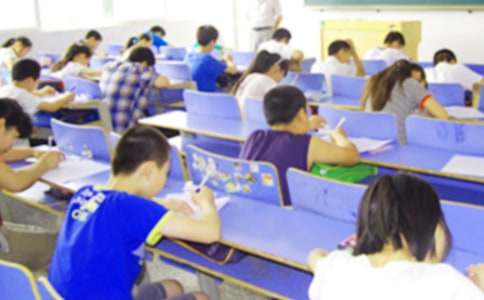- 相關推薦
2017翻譯資格考試中級筆譯仿真題及答案
【第一題】

中國是一個發展中國家。多年來,中國在致力于自身發展的同時,始終堅持向經濟困難的其他發展中國家提供力所能及的援助,承擔相應國際義務。
中國仍量力而行,盡力開展對外援助,幫助受援國增強自主發展能力,豐富和改善人民生活,促進經濟發展和社會進步。中國的對外援助,發展鞏固了與廣大發展中國家的友好關系和經貿合作,推動了南南合作,為人類社會共同發展作出了積極貢獻。
中國對外援助堅持平等互利,注重實效,與時俱進,不附帶任何政治條件,形成了具有自身特色的模式。
中國的對外援助政策具有鮮明的時代特征,符合自身國情和受援國發展需要。國是世界上最大的發展中國家,人口多、底子薄、經濟發展不平衡。發展仍然是中國長期面臨的艱巨任務,這決定了中國的對外援助屬于南南合作范疇,是發展中國家間的相互幫助。
中國對外援助政策堅持平等互利、共同發展、堅持與時俱進。
當前,全球發展環境依然十分嚴峻。國際金融危機影響尚未消退,氣候變化、糧食危機、能源資源安全、流行性疾病等全球性問題給發展中國家帶來新的挑戰,新形勢下,中國對外援助事業任重道遠。中國政府將著力優化對外援助結構,提高對外援助質量,進一步增強受援國自主發展能力,提高援助的針對性和實效性。中國作為國際社會的重要成員,將一如既往地推進南南合作,在經濟不斷發展的基礎上逐步加大對外援助投入,與世界各國一道,推動實現聯合國千年發展目標,為建設持久和平、共同繁榮的和諧世界而不懈努力。
參考譯文:
China is a developing country. Over the years, while focusing on its own development, China has been providing aid to the best of its ability to other developing countries with economic difficulties, and fulfilling its due international obligations.
China remains a developing country with a low per-capita income and a large poverty-stricken population. In spite of this, China has been doing its best to provide foreign aid, to help recipient countries to strengthen their self-development capacity, enrich and improve their peoples’ livelihood, and promote their economic growth and social progress. Through foreign aid, China has consolidated friendly relations and economic and trade cooperation with other developing countries, promoted South-South cooperation and contributed to the common development of mankind.
Adhering to equality and mutual benefit, stressing substantial results, and keeping pace with the times without imposing any political conditions on recipient countries, China’s foreign aid has emerged as a model with its own characteristics.
China’s foreign aid policy adheres to equality, mutual benefit and common development, and keeps pace with the times.
China’s foreign aid policy has distinct characteristics of the times. It is suited both to China’s actual conditions and the needs of the recipient countries. China has been constantly enriching, improving and developing the Eight Principles for Economic Aid and Technical Assistance to Other Countries — the guiding principles of China’s foreign aid put forward in the 1960s. China is the world’s largest developing country, with a large population, a poor foundation and uneven economic development. As development remains an arduous and long-standing task, China’s foreign aid falls into the category of South-South cooperation and is mutual help between developing countries.
Currently, the environment for global development is not favor-able. With the repercussions of the international financial crisis continuing to linger, global concerns such as climate change, food crisis, energy and resource security, and epidemic of diseases have brought new challenges to developing countries
Against this background, China has a long way to go in providing foreign aid. The Chinese government will make efforts to optimize the country’s foreign aid structure, improve the quality of foreign aid, further increase recipient countries’ capacity in independent development, and improve the pertinence and effectiveness of foreign aid. As an important member of the international community, China will continue to promote South-South cooperation, as it always has done, gradually increase its foreign aid input on the basis of the continuous development of its economy, promote the realization of the UN Millennium Development Goals, and make unremitting efforts to build, together with other countries, a prosperous and harmonious world with lasting peace.
【第二題】
In-state tuition. For decades, it was the one advantage big state schools had that even the Ivy League couldn't match, in terms of recruiting the best and the brightest to their campuses. But these days, that's no longer necessarily the case. Starting this September, some students will find a Harvard degree cheaper than one from many public universities. Harvard officials sent shock waves through academia last December by detailing a new financial-aid policy that will charge families making up to $180,000 just 10% of their household income per year, substantially subsidizing the annual cost of more than $45,600 for all but its wealthiest students. The move was just the latest in what has amounted to a financial-aid bidding war in recent years among the U.S.'s élite universities.
Though Harvard's is the most generous to date, Princeton, Yale and Stanford have all launched similar plans to cap tuition contributions for students from low- and middle-income families. Indeed, students on financial aid at nearly every Ivy stand a good chance of graduating debt-free, thanks to loan-elimination programs introduced over the past five years. And other exclusive schools have followed their lead by replacing loans with grants and work-study aid. And several more schools are joining the no-loan club this fall. Even more schools have taken steps to reduce debt among their neediest students.
【參考譯文】
數十年來,州內學費是大型州立學校得天獨厚的優勢,連常春藤聯盟都無法匹敵,因為這能為學校招來最優秀、最聰明的學生。但是如今,情況卻未必如此。從今年九月起,一些學生會發現讀一個哈佛大學的學位比許多公立大學的還要便宜。去年十二月,哈佛官員詳細闡述了一項新的財政資助政策,對于年收入不高于180000美元的家庭,只收取其中的10%作為學費。絕大多數學生的家庭經濟條件一般,本來每年要繳納45600多美元的學費,對他們而言,這可謂一份厚禮,整個學術界為之震動。近年來,美國的精英大學紛紛出臺財政資助政策,相互之間打得不可開交,哈佛大學的這一舉措只是其中最新的一項。
盡管哈佛開出的條件是迄今最優厚的,普林斯頓、耶魯和斯坦福都出臺了類似的計劃,來降低中低收入家庭的學生所需支付的學費。而且,由于過去五年里采用的免貸款計劃,如今幾乎每一所常春藤盟校里接受資助的學生都很可能無債一身輕地畢業。其它收費昂貴的學校紛紛效仿,取消了貸款,發放助學金和勤工儉學補助。今年秋天,還有幾所學校會加入這個“無貸款俱樂部”。更多的學校都已采取措施,為最需要資助的學生減少債務。
【翻譯資格考試中級筆譯仿真題及答案】相關文章:
翻譯資格考試中級筆譯沖刺練習01-22
2017翻譯資格考試中級口譯仿真試題答案10-14
2017中級出版資格考試仿真題及答案01-23
翻譯資格考試筆譯沖刺題07-17
2017翻譯資格考試中級口譯預測題答案10-02
2024年翻譯資格考試中級口譯真題及答案10-09
2017翻譯資格考試中級口譯模擬真題答案07-21
2017中級翻譯資格考試口譯仿真試題答案08-05






